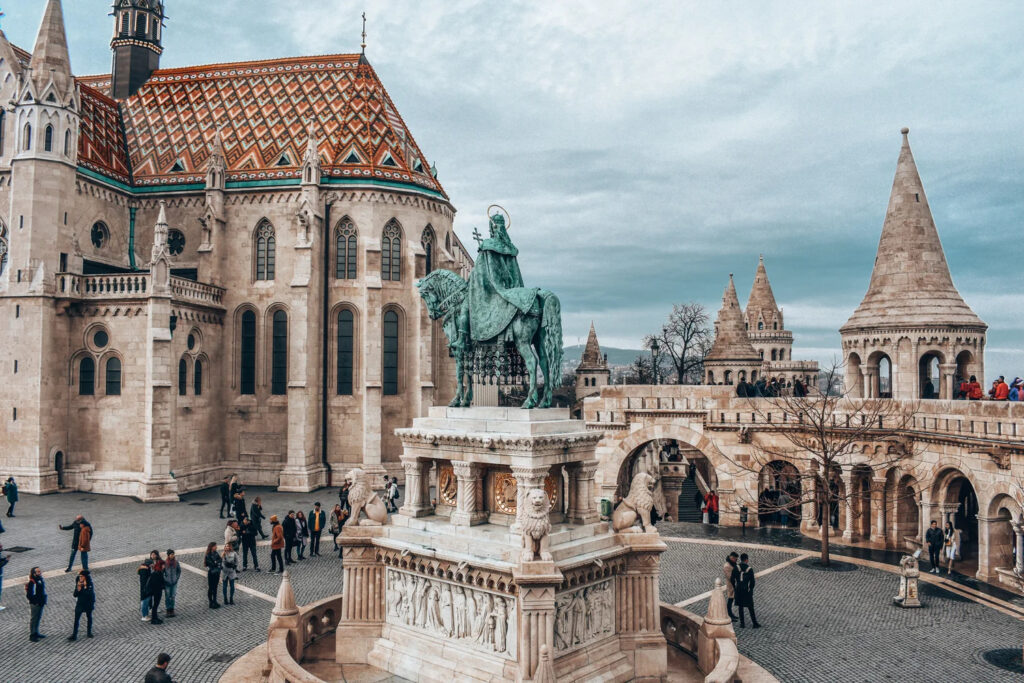Nestled along the banks of the Danube River, Budapest, the capital of Hungary, stands as a testament to the ebb and flow of European history. With its architectural marvels and storied streets, the city has witnessed the rise and fall of empires, invasions, revolutions, and rebirths.
While the beauty of Budapest can be appreciated through casual strolls, guided tours offer a structured and in-depth exploration, unraveling the layers of history that have shaped this magnificent city. It is possible to buy excursions at https://alle.travel/en/budapest.
The Foundations of Budapest
Before the Magyars set foot, Celts and Romans had already recognized the strategic importance of the region. Aquincum, the capital of the Roman province of Pannonia, was established around AD 41, laying the foundation for modern-day Budapest.
Budapest’s unique character stems from the unification of three distinct cities: Buda, Pest, and Óbuda in 1873. Each region, with its own charm, contributes to the city’s diverse cultural tapestry.
The Danube, Europe’s second-longest river, has been both a blessing and a challenge for Budapest. It facilitated trade and connectivity but also became a frontier during the Ottoman occupation.
Medieval Budapest
In 1241, the Mongol hordes swept through Hungary, leaving devastation in their wake. Budapest rebuilt, with King Béla IV constructing fortresses and protective walls, many of which stand to this day.
Post the Mongol invasion, the Kingdom of Hungary emerged stronger, with Budapest at its political and cultural helm, influencing vast regions of Central Europe.
For over 150 years, the Ottomans ruled Budapest, leaving an indelible mark on its architecture, culture, and cuisine. The Turkish baths, a legacy of this era, remain popular among locals and tourists alike.
Modern Budapest
The 19th century ushered in the Austro-Hungarian Empire, bringing with it a cultural and architectural renaissance. Grand boulevards, opulent palaces, and the iconic Hungarian Parliament Building were constructed during this golden age.
Both World Wars scarred Budapest, with battles, occupations, and the Holocaust leaving deep wounds. Yet, the city’s resilient spirit ensured its recovery and reconstruction.
Post World War II, Budapest fell under Communist rule, leading to decades of suppression. The 1956 Revolution, though crushed, sowed the seeds for eventual liberation in 1989.
Emerging from the shadows of Communism, Budapest today is a vibrant metropolis, harmoniously blending its rich past with modern aspirations.
Guided Tours: Windows to the Past
Guides breathe life into brick and mortar, transforming historical sites into vivid tales of heroism, love, and intrigue.
From the Buda Castle to the Heroes’ Square, guided tours encompass a range of sites, each narrating a unique chapter of Budapest’s history.
Travelers often recount the magic of walking through history, with guides transporting them back in time, making the past palpable.
The Benefits of Guided Tours
Guided tours offer insights that go beyond the surface, delving into the socio-political contexts of each era.
Local legends, folklore, and anecdotes add color to historical facts, making the experience immersive.
Structured tours, expert guides, and curated itineraries ensure that tourists make the most of their time, gaining a holistic understanding of Budapest.
Challenges and Criticisms
The line between education and entertainment can blur, leading to concerns about diluting historical authenticity.
Guides, being human, may inadvertently introduce their biases, emphasizing the need for continuous training and oversight.
Striking the right balance is crucial to ensure that history is both engaging and educational.
Case Study: A Popular Historical Tour in Budapest
The “Budapest Through the Ages” tour offers a panoramic view of the city’s history, spanning millennia.
From Roman ruins to Communist-era monuments, the tour is a journey through time.
With a 4.8/5 rating, participants laud the tour’s comprehensiveness and the guide’s expertise.
Conclusion
Budapest, with its storied past, is a historian’s dream. Guided tours, with their structured approach and expert narration, offer the perfect gateway to delve deep into the city’s soul, making history come alive.
